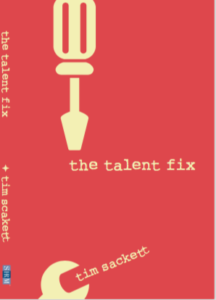Hola todos! I am currently studying abroad in Granada, Spain for 6 weeks and I thought it would be a cool opportunity to focus on some things that I notice are either different or interesting about Spain/Europe! If you have any ideas for things that you want me to talk about, please leave a comment and let me know!
Something that I learned from a very young age and value very highly is punctuality. My parents (especially my Father) have instilled a need to be aggressively early for almost everything. My Dad likes to get to our sporting events (especially baseball tournaments) before they have even started setting up, and this need to be early has been passed down to me. My high school choir teacher always used to say “to be early is to be on time, to be on time is to be late, and to be late is to be left behind”. I would like to say that I try to follow this rule within my everyday life.
One thing that I’ve learned from my time in Spain is that many people arrive on what I like to call “Spanish time”, where everyone arrives/everything starts about 10 minutes after the stated time. I was warned about this upon arrival and I knew that this was going to be a struggle for me. I am the type of person that is always 10 minutes early for class and now you’re saying that I’m actually 20 minutes early! If there’s one thing I hate more than being late, it’s wasting time.
While talking with my host family and some local advisors of my program, I found out that “Spanish time” doesn’t apply to everything. People here show up on time for appointments or other important engagements, but for social gatherings, it is completely okay to arrive a little late. No one gets a little pissy if you show up 10 minutes late to your dinner plans because no one cares! (also they are probably 10 minutes late too).
I tend to get very annoyed with tardiness, and while I’ve been here, I deal with it every day. Rather than live my life in constant annoyance, I’ve tried to shift my mindset. I still value my punctuality very highly and arrive early to all of my classes, trips, or other important events, but I am trying to accept the tardiness of my peers in social settings.
As I’m looking to starting my first “real” job once I return from Spain, I am curious to see how punctuality in the workplace is maybe different in the US than in Spain. I don’t plan on arriving late to work, but I hope that if something happens (like Downtown Detroit traffic), that I won’t be ostracized for my tardiness.
My time has shown me that maybe it’s okay to adopt some of this mentality into our lives. In America, we tend to drive ourselves into the ground by being so busy, but we should allow a little bit of tardiness in non-serious situations. While I don’t think I’m going to start being late to everything, I am trying to adopt this attitude of valuing punctuality in important circumstances, but allowing for some lateness in a social setting. Let’s all be on time for our next doctor’s appointment, but relax a little bit next time your friend is 5 minutes late to dinner.
 This post was written by Cameron Sackett (not Tim) – you can probably tell because it lacks grammatical errors!
This post was written by Cameron Sackett (not Tim) – you can probably tell because it lacks grammatical errors!
HR and TA Pros – have a question you would like to ask directly to a Gen Z? Ask us in the comments and I’ll respond in an upcoming blog post right here on the project. Have some feedback for me? Again, please share in the comments and/or connect with me on LinkedIn.


